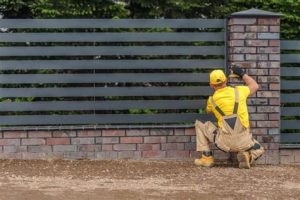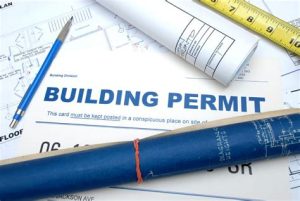Discover essential information on Florida fence installation regulations, licensing requirements, and the impact of building codes, plus penalties for unlicensed contractors.When it comes to enhancing your property’s curb appeal and ensuring privacy, installing a fence can be an excellent choice for homeowners in Florida. However, before you start planning the perfect fence, it’s crucial to navigate the regulations surrounding fence installation in the Sunshine State. Many prospective fence installers wonder if they need a license and what the specific requirements are. This blog post will guide you through the intricacies of Florida’s fencing regulations, from understanding the licensing requirements for contractors to the steps needed to obtain a fence installation license. We will also explore how building codes impact your construction plans and the potential penalties you could face for unauthorized installation. Let’s dive into the essential details you need to know to successfully and legally install a fence in Florida.
Regulation of Fence Installation in Florida
In Florida, the regulation of fence installation varies by county and municipality, making it crucial for homeowners and contractors alike to understand the specific requirements in their area. Generally speaking, fences are often classified under zoning regulations which dictate the height, type, and location where a fence can be installed.
Many local jurisdictions require a permit before any fence installation begins. This process typically involves submitting a site plan to ensure the fence complies with both local codes and zoning regulations. Homeowners should check with their local government offices or websites for the necessary permits, as failure to do so can lead to significant fines and the potential need to remove the fence.
It’s also worth noting that some neighborhoods may have additional restrictions based on homeowners’ association (HOA) rules. These rules can further refine the types of fences that are allowable, including aesthetics and materials.
Licensing Requirements for Fence Contractors
When it comes to fence installation in Florida, understanding the licensing requirements for contractors is crucial to ensuring compliance with local regulations. In many instances, a contractor must hold a valid license to legally install fencing. These requirements can differ based on the type of fencing being installed, thus necessitating a clear comprehension of the local laws.
- General Contractor’s License: For large-scale fencing projects, a general contractor’s license may be necessary to ensure that the contractor is qualified to handle such work.
- Specialty License: Contractors may also need a specialty license specific to fence installation, depending on local ordinances.
- Business License: A valid business license is often required, ensuring that the contractor is legally operating within the state.
Additionally, potential contractors must demonstrate a certain level of experience and may be required to pass examinations to obtain the necessary licenses.
Steps to Obtain a Fence Installation License
If you are considering becoming a fence contractor in Florida, understanding the steps to obtain a fence installation license is essential. The licensing process can be intricate, but it ensures that you meet the legal requirements to operate safely and effectively in your profession.
- Research Local Regulations: Before anything else, familiarize yourself with local regulations regarding fence installation. Different counties and cities may have specific requirements.
- Complete Required Training: You may need to complete certain training programs or courses relevant to fence installation and safety protocols.
- Gather Necessary Documentation: Prepare documentation, including proof of experience, insurance certificates, and any other required paperwork.
- Submit an Application: Fill out and submit your application for a fence installation license through your local licensing authority.
- Pay the Fees: Be ready to pay any applicable fees associated with the license application process.
- Pass the Examination: You might need to pass a licensing exam that tests your knowledge of installation techniques, safety protocols, and local regulations.
- Receive Your License: Once you have met all requirements and passed necessary assessments, you will be issued a fence installation license.
Obtaining your fence installation license is not only a legal requirement but also a way to enhance your professional credibility.
Impact of Building Codes on Fence Construction
In the state of Florida, building codes play a crucial role in ensuring the safety and integrity of structures, including fences. These codes are set forth by local governments and can vary significantly from one area to another. Understanding these regulations is essential for property owners and contractors alike, as they dictate what is permissible in terms of height, materials, and location of fences.
One of the primary purposes of building codes is to protect public safety and welfare. For instance, fences that are too high may obstruct visibility for drivers and pedestrians, leading to potential accidents. As such, many municipalities impose height restrictions on fences, especially those located near roads or intersections. For example, a common limit might be 4 feet in front yards and up to 6 feet in backyards, depending on local regulations.
Additionally, building codes may dictate the types of materials that can be used for fence construction. This is particularly important for areas that are prone to severe weather events, such as hurricanes. In such regions, codes often require that fences are built to withstand high winds, prompting homeowners to choose materials that are not only durable but also compliant with the latest safety standards.
Failure to adhere to these codes can lead to penalties or the need for costly modifications. Therefore, it is wise for property owners to consult local regulations or speak with a licensed fence contractor before starting any installation project. By staying informed about building codes, you can ensure that your fence not only enhances your property’s aesthetics but also meets safety requirements.
Penalties for Unlicensed Fence Installation
Installing a fence in Florida without the appropriate license can lead to significant penalties. Florida state law mandates that all contractors, including those specializing in fence installation, obtain a valid license to perform such work. These licensing requirements are put in place to ensure public safety, uphold building codes, and provide consumers with a level of assurance regarding the quality of work.
When a contractor is found to be operating without a license, they may face severe fines. Depending on the circumstances, these fines can range from hundreds to thousands of dollars. Moreover, the contractor may be required to obtain a license retroactively, which can be a lengthy and costly process. In addition to financial repercussions, there could also be legal implications, including potential criminal charges for repeated offenses.
Customers hiring unlicensed contractors bear their own risks. If the installation does not comply with building codes, homeowners may face additional costs to remedy the situation, which can include removing and reinstalling the fence legally. Insurance claims can also be complicated when unlicensed work is involved, potentially leaving homeowners financially responsible for issues that arise from the improper installation.
Frequently Asked Questions
Is a license required to install fences in Florida?
Yes, in Florida, a license is typically required for installing fences, particularly if it involves specific structural codes or alterations to property lines.
What types of fences usually require a license in Florida?
Fences that are over a certain height, require electrical components, or if they are part of a commercial project will usually necessitate a license.
Can homeowners install a fence without a license in Florida?
Homeowners may install a simple residential fence without a license, but they must still adhere to local building codes and obtain necessary permits.
What are the penalties for installing a fence without a license in Florida?
Installing a fence without a proper license can lead to fines, required removal of the fence, and complications during property transactions.
How can I find out if I need a permit for my fence installation?
You can contact your local building department or check their website to determine if a permit is necessary for your specific fence installation.
Are there different regulations for residential and commercial fence installations in Florida?
Yes, commercial installations generally have stricter regulations and may require a licensed contractor, whereas residential may allow for more DIY options.
What steps should I take to ensure compliance when installing a fence?
To ensure compliance, you should check local zoning laws, obtain a permit if necessary, and hire a licensed contractor if required for your project.





